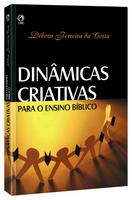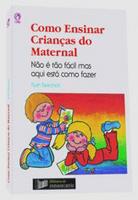sábado, 14 de agosto de 2010
How can we discern false teachers?
Matthew 7:13-23 “Enter by the narrow gate; for the gate is wide, and the way is broad that leads to destruction, and many are those who enter by it. 14 “For the gate is small, and the way is narrow that leads to life, and few are those who find it. 15 “Beware of the false prophets, who come to you in sheep’s clothing, but inwardly are ravenous wolves. 16 “You will know them by their fruits. Grapes are not gathered from thorn bushes, nor figs from thistles, are they? 17 “Even so, every good tree bears good fruit; but the bad tree bears bad fruit. 18 “A good tree cannot produce bad fruit, nor can a bad tree produce good fruit. 19 “Every tree that does not bear good fruit is cut down and thrown into the fire. 20 “So then, you will know them by their fruits. 21 “Not everyone who says to Me, ‘Lord, Lord,’ will enter the kingdom of heaven; but he who does the will of My Father who is in heaven. 22 “Many will say to Me on that day, ‘Lord, Lord, did we not prophesy in Your name, and in Your name cast out demons, and in Your name perform many miracles?’ 23 “And then I will declare to them, ‘I never knew you; depart from Me, you who practice lawlessness.’”
False prophets are particularly dangerous because they appear to be genuine. They seemingly have the credentials of authority. What are these credentials? Jesus calls them ‘sheep’s clothing’ (verse 15).
[“He said that the false prophets were like wolves in sheep’s clothing. When the shepherd watched his flocks upon the hillside, his garment was a sheepskin, worn with the skin outside and the fleece inside. But a man might wear a shepherd’s dress and still not be a shepherd. The prophets had acquired a conventional dress. Elijah had a mantle (1 Kings 19:13,19), and that mantle had been a hairy cloak (2 Kings 1:8). That sheepskin mantle had become the uniform of the prophets, just as the Greek philosophers had worn the philosopher’s robe. It was by that mantle that the prophet could be distinguished from other men. But sometimes that garb was worn by those who had no right to wear it, for Zechariah in his picture of the great days to come says, “Neither shall they wear a rough garment to deceive’’ (Zechariah 13:4). There were those who wore a prophet’s cloak, but who lived anything but a prophet’s life.” William Barclay, The Gospel of Matthew (Edinburgh: The Saint Andrew Press, 1963), 1, p. 286.]
The outward forms would incline one to believe these false prophets to be reliable guides. They may wear a distinctive garb which sets them apart as leaders. They may have the title ‘reverend.’ They may be men who hold positions of religious leadership. They may well have graduated from a divinity school. Indeed, they might even be seminary professors. Judging on the basis of external indications we might wrongly assume them to be reliable guides, but we must not evaluate them on such external evidence.
These false prophets can be detected by their fruits. Judging by external forms is risky; judging (if you prefer, discerning) on the basis of fruits is absolutely necessary and part of our responsibility. ‘The proof of the root is in the fruit.’ Good trees produce good fruit, and rotten trees, bad fruit. A dependable assessment of those who would be guides is that of their fruits (Matthew7:20). But, what are these fruits? One must be very careful here, for false prophets are not without religious activities. A false prophet is often accompanied by deceptive signs and by seeming wonders. Some of these are suggested in Matthew 7:22: “Many will say to Me on that day, ‘Lord, Lord, did we not prophecy in Your name, and in your name cast out demons, and in Your name perform many miracles?”’
We should expect false prophets to engage in acts of kindness and charity. We should expect them to perform deeds which suggest miraculous power. And we should expect that these deeds be performed under the pretext of being done by God’s power and to His glory.
“For such men are false apostles, deceitful workers, disguising themselves as apostles of Christ. And no wonder, for even Satan disguises himself as an angel of light. Therefore it is not surprising if his servants also disguise themselves as servants of righteousness; whose end shall be according to their deeds” (2 Corinthians 11:13-15).
We should expect false prophets to be accompanied by religious works, often unusual and spectacular, done ostensibly in the name of God. Satan willingly gives the glory to God in such cases, so long as ultimately he is able to deceive people and cause them to their allegiance and obedience him.
But are these religious activities the fruits of which the Master spoke? If not, what are they? The Scriptures frequently describe the fruits of the false prophets, so that we are left with little doubt as to what we should look for. I believe we can see the fruits of the false prophets falling into three categories.
(1) The first category of the fruits of the false prophet is their doctrine. False prophets speak from their own delusion, not by divine command (Jeremiah 23:16,21,25; Ezekiel 13:2). They do not proclaim or defend God’s word, but deny it (Jeremiah 23:17). In particular they deny unpleasant subjects such as impending judgment (Jeremiah 6:14; 28:17; Ezekiel 13:10). They offer temporary and partial relief to pressing problems (Jeremiah 8:11). Mainly, they tell people precisely what they want to hear (1 Kings 22:8, 13; 2 Timothy 4:3-4). Concerning the way of salvation they deny the deity of our Lord Jesus Christ and they reject the work of Christ on the cross (2 Peter 2:1; 1 John 4:2-3).
(2) The second category of the fruits of the false prophets is the effect of their teaching in the lives of men. Invariably it leads to a rejection of God’s word, a rejection of biblical authority, a division among the saints (Jeremiah 23:2,14) and a life of sensuality (2 Peter 2:2). They attempt to lead men away from the truth of the gospel (Acts 13:8), and to deceive genuine Christians with false doctrine (Mark 13:22). This is also evident from the pastoral epistles (1 and 2Timothy and Titus) where Paul speaks of the need of sound or healthy doctrine (1 Tim. 4:6; 2 Tim. 4:3; Tit. 1:9; 2:1).
(3) Finally, there is the fruit of the false teachers as evidenced in their own moral character. They are easily distinguished by their pride (2 Peter 2:10), their greed (Jeremiah 8:10; Titus 1:11; 2 Peter 2:3,14) and immorality (Jeremiah 23:11,14; 2 Peter 2:14). They are men dominated by the flesh (2 Peter 2:10,12; 3:3). They prey upon the weak and the guilt-ridden (2 Timothy 3:6-7; 2 Peter 2:14,13). While they profess to know God, by their deeds they deny Him (Matthew 7:22-23; 2 Timothy 3:5; Titus 1:16). While they delight in authority, they refuse to submit to it (2 Peter 2:10).
“A blind man cannot guide a blind man, can he? Will they not both fall into a pit?” (Luke 6:39).
There are many godless guides who would lead us to the wide gate and the way which leads to destruction. These false teachers are not only blind themselves, but they lead others to destruction with them. It is the Lord Who will pronounce the final verdict and Who will sentence the false prophets to everlasting torment
Fonte: http://bible.org/





















































































0 Comments:
Post a Comment